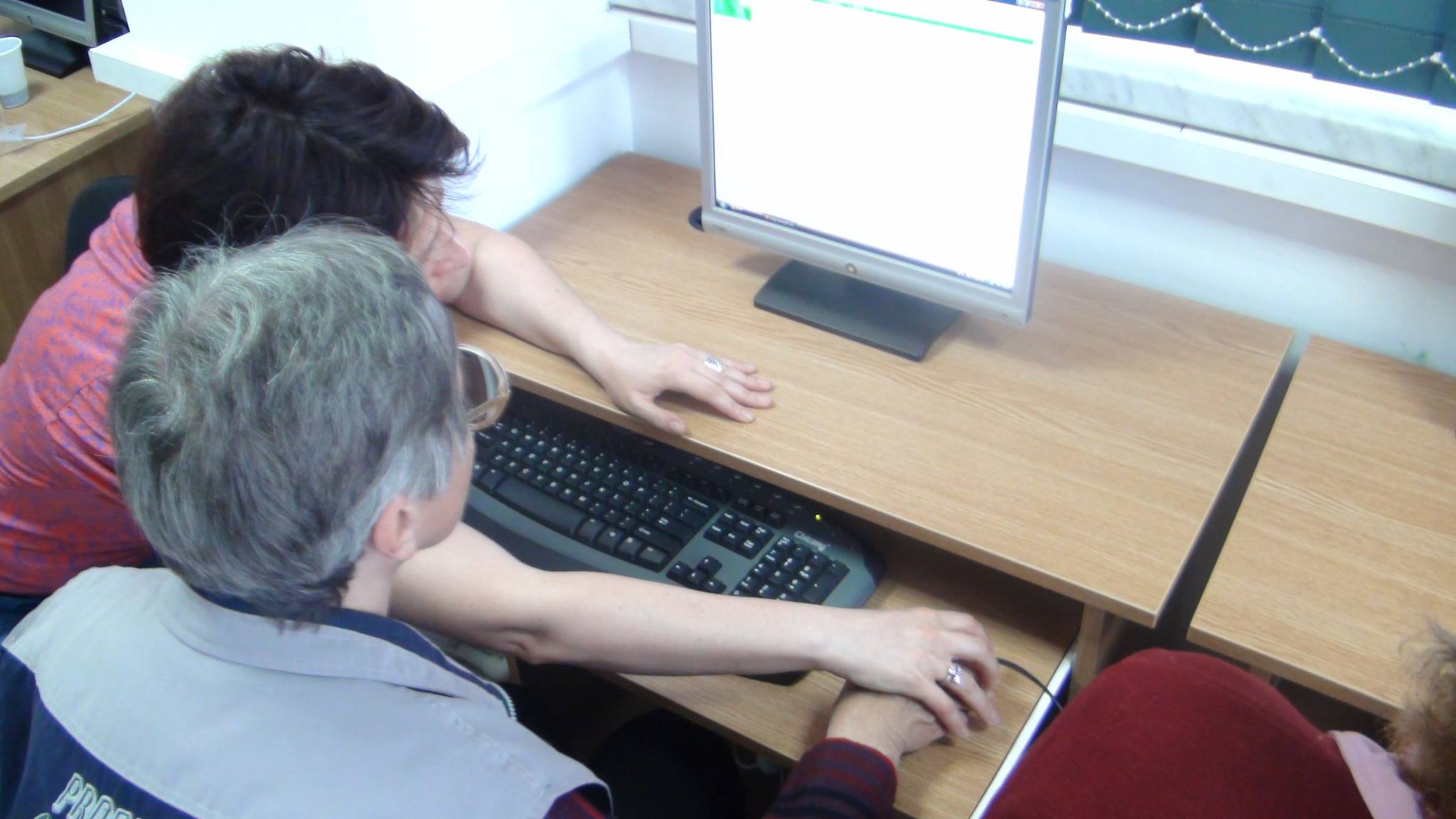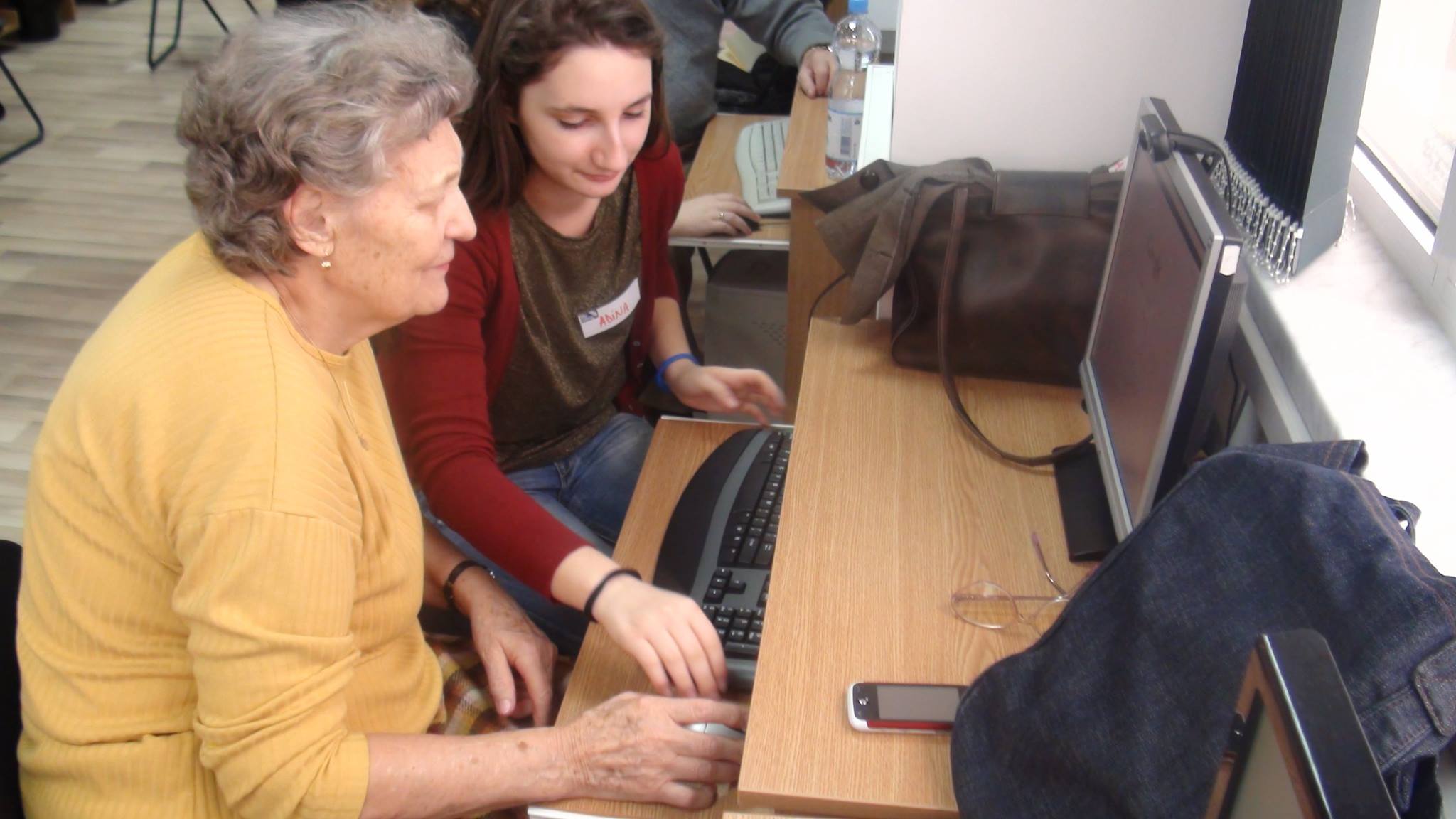European citizens do not participate equally in the Information society: in fact, the digital gap is moving down from infrastructures to uses. Based on this observation, local authorities in Europe have developed Digital Public Spaces (DPS) promoting e-inclusion.
MyStory good practice has developed an ICT-based solution to empower seniors to learn basic technical skills via intergenerational learning, to gain access to new learning opportunities and to make contact with people who are potentially at risk of social exclusion. The common “language” through which this is achieved is the seniors’ life stories, which have been collected by technically competent younger people, well-versed in navigating the digital world. These stories are also being exploited as an authentic resource for research into the history of the second part of the 20th century, as well as for networking purposes.
As access to internet technology is becoming more polarized, many seniors who may already have to cope with a higher threat of marginalization, are even more isolated, struggling to find a role in society. The growth of the internet and the emergence of modern networked societies have created new opportunities for both interaction and collaboration. Younger generations, growing up in this society, become proficient in the use of the Internet and of ICT applications from an early age, an aspect which the partnership employs to bridge the "digital divide" between generations
.
The objective of the MyStory project are:
- to facilitate and support intergenerational learning and collaboration by organizing activities on interview taking and ICT training which involve representatives from the two main categories of beneficiaries, youth and seniors.
- to support the younger generations use of their ICT skills and knowledge for educational purposes towards seniors generation
- to continuously widen the base of beneficiaries from all the categories targeted by the project and add new ones as the project develops with the declared goal to maximise the impact for all the activities developed in the project
- to raise self-esteem of the elderly and help them improve their social life by involving them in activities with young people and other seniors at national and international level
- to develop an online repository of digital life stories that document elements from participants‟ lives (such as life during the communist regime, the aftermath of WWII, specificities of various jobs, culture, the events of the 1990 in Eastern Europe, etc.).
- to help develop a better understanding and social inclusion of the two main categories of beneficiaries in the project
- to identify ingenious ways of using the materials created by as wide professional network as possible within and beyond the countries of the partnership
- to create digital support and models of educational and research tools for the use of the repository of edited or raw life stories collected in the project
- to pilot these educational and research tools and update them according to the new developments of ICT
-
An interesting approach for dissemination and sustainability was created by presenting the project materials (films, interviews etc.) in schools during classes of history and civil education, in universities, in public institutions during dedicated events, at the local/national Television, at the Short Film festivals.

Transfer of the good practice MyStory in Mszczonów, Poland (micro implementation)
The MyStory initiative had been selected as a good practice in the E-coop Project to be replicated/micro-implemented in Mszczonów Area in GIC (Gina Information Centre) during October 2013- May 2014, involving 16 schools and 16 seniors (elderly people).
The most significant factors motivating seniors to take part were: exchange of experience (78%), exchange of life experiences (78%), opportunity to get knowledge about pupils (50%), opportunity to get new skills (44%), opportunity to develop computer skills (44%), feeling to be needed (33%).
The main outcomes identified among participants in Poland: - intergenerational integration; the opportunity to acquire new skills for the participants and for the staff; boosting the self-esteem of the project participants; promotion of voluntary service; - promotion of the Commune Information Centre.
The most significant benefits indicated by young Polish participants (students) have been: exchange of experience (94%), knowledge about the past (81%), precious experience for future career (63%), knowledge about senior’s needs and problems, helping other people (50%), ICT skills development (6%).
Beside direct benefits to the targeted beneficiaries, the micro-implementation provided valuable material for the Memorial House of Mszczonów. Micro-implementation in Mszczonów has shown that MyStory initiative is a highly transferable good practice which could be implemented in any European community.




